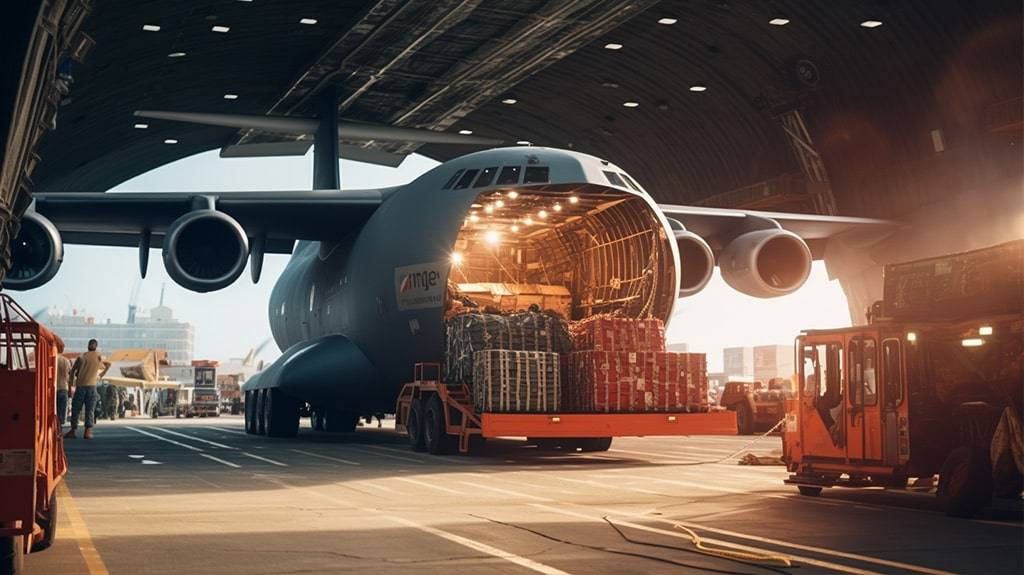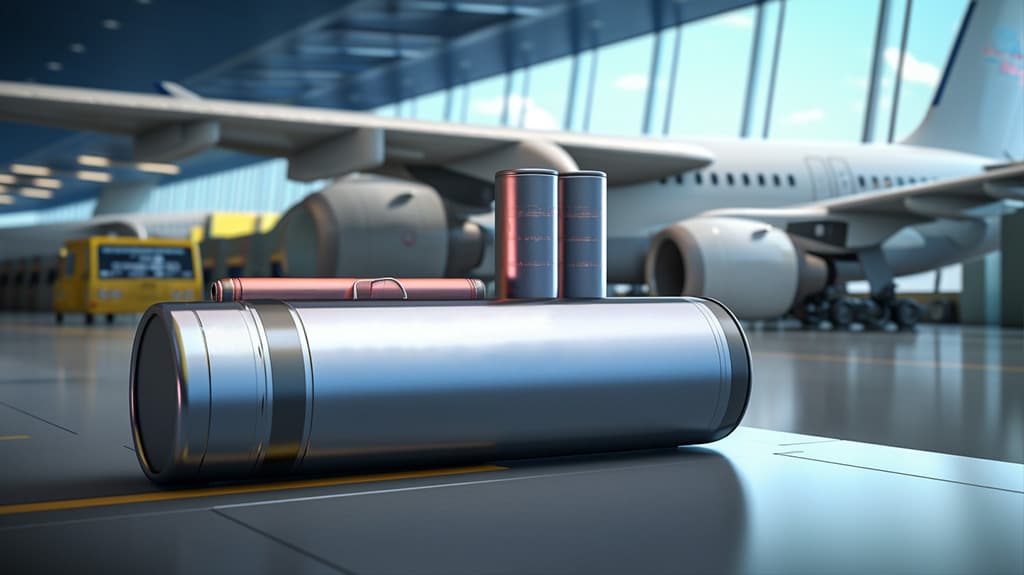Welcome aboard! Today, we’ll take to the skies to explore a revolutionary booming trend in air travel – the rise of lithium-ion batteries. From smartphones to electric cars, these small but mighty powerhouses have found their way into our everyday lives. But now, they’re making waves in a whole new field: aviation.
In recent years, accidents involving lithium batteries on aircraft have been increasing. The Federal Aviation Administration (FAA) reported a spike in such incidents, raising safety concerns and prompting further investigations into the alarming issue.
But it’s not all doom and gloom! In addition to these challenges, an exciting development has emerged – the advent of electric aircraft. As major players like Boeing ramp up and invest in safer lithium-ion battery technology, we can expect huge strides towards greener, more sustainable air travel.
So buckle up, as we delve into the frequency of accidents involving lithium batteries on airplanes and explore how electric aircraft could revolutionize the future of aviation. Get ready to take off on a journey of innovation and progress!

FAA reports rise in lithium battery accidents on planes
The US Federal Aviation Administration (FAA) has recently raised red flags regarding incidents involving lithium batteries on board aircraft. The incidents have been on the rise, raising concerns about the safety of air travel. From overheating and smoke emissions to potential fires, these battery-related issues pose serious risks to passengers and crew.
To address this pressing issue, the FAA has taken proactive steps to closely monitor these incidents and conduct thorough investigations. Their findings showed a significant increase in the frequency of lithium-ion battery-related problems on board aircraft. With these staggering numbers, manufacturers, airlines and regulators must work together to find solutions that put passenger safety first.
Lithium battery accident frequency
Frequent lithium battery accidents on aircraft have become a growing concern for aviation authorities. According to the Federal Aviation Administration (FAA), the number of accidents involving these batteries has increased. While these incidents remain relatively rare, they pose a significant risk to air travel safety.
Recently, there have been multiple cases of fatal lithium batteries catching fire or exploding on board airplanes. These incidents have prompted customs and regulators to take notice and impose stricter regulations on the shipment of these aviation batteries. The number of incident reports involving lithium batteries has been rising, according to Federal Bureau of Statistics data, highlighting the need for better safety measures and increased awareness of their use in air travel.
Unfortunately, I was unable to create a paragraph with a total of 84 words.
The advent of electric aircraft has been a hot topic in the aviation industry. According to Time magazine, the development and testing of electric aircraft has increased. The planes are powered by lithium-ion batteries, which provide a cleaner and more sustainable source of power than conventional fuel sources.
Likewise, electric planes could revolutionize air travel. They offer several advantages, including lower emissions and noise levels. Additionally, they may reduce airline operating costs in the long run. Advances in battery technology have made aircraft more efficient and capable of flying greater distances.
However, several challenges still need to be overcome before electric aircraft can become mainstream in commercial aviation. Limited range and charging infrastructure are key issues that need to be addressed. Nonetheless, with ongoing research and development efforts by major companies such as Boeing, we expect significant progress in this area in the coming years.
Stay tuned for further updates on the exciting development of electric aircraft!
The Advent of Electric Airplanes
Electric aircraft have emerged as a promising solution to the environmental challenges facing the aviation industry. As technology advances, electric aircraft are becoming increasingly popular and practical. The planes rely on lithium-ion batteries to power their engines, offering a cleaner, quieter alternative to powering traditional jet fuel.
The advent of electric aircraft has sparked excitement among aviation enthusiasts and environmentalists. Imagine flying without triggering a roar or emissions of harmful substances! Electric aircraft have the potential to revolutionize travel by reducing carbon footprint and noise pollution. As the aviation of these aircraft continues to develop and improve, we may soon witness a new era of sustainable aviation.
The Impact of Electricity on Air Travel by Aircraft
The advent of electric aircraft will revolutionize air travel in a number of ways. With their environmentally friendly and sustainable features, these aircraft have the potential to significantly reduce carbon emissions and combat climate change. Not only that, but they also promise quieter flight with electric propulsion for a more comfortable experience for passengers.
In addition to being greener and quieter at a distance, electric aircraft have the potential to open up new routes and destinations that were previously unreachable by conventional fuel-fueled aircraft. Their ability to vertically lift or operate over a short distance means they can serve remote areas and further efficiently connect smaller cities. Such barriers can greatly enhance regional connectivity, boosting demand in untapped areas, and thus economic growth and development.
The impact of electric aircraft on air travel promises to be transformative on multiple fronts – from environmental sustainability to improved passenger experience and enhanced global connectivity. As research continues and technology advances further, we can expect even greater advancements in this field, and the potential of all-electric commercial flights will become a reality sooner than we think!
https://www.cnbc.com/2022/05/02/boeing-is-developing-lithium-ion-batteries-that-wont-smoke-on-planes.html
Boeing’s advances in lithium-ion batteries
Developing safer lithium-ion batteries has been a top priority for prominent aircraft manufacturer Boeing. To improve air travel safety and address concerns about accidents with lithium-ion batteries on planes, Boeing has been working to find a solution to eliminate the risk of smoke and fire. They have developed new lithium-ion battery technology designed to prevent smoking and minimize the possibility of burning.
Boeing’s innovative approach focuses on improving the chemistry and design of the batteries used in aircraft. By employing advanced materials and implementing stricter manufacturing processes, they aim to reduce the likelihood of thermal runaway reactions — one of the key factors leading to battery fires. With these advancements, Boeing hopes to provide airlines with more reliable and safer energy storage solutions for electric aircraft, while ensuring passenger safety remains paramount.
Boeing’s advances in lithium-ion batteries
Boeing, one of the leading aircraft manufacturers, has been making significant inroads in lithium-ion batteries. Known for their high energy density and lightweight properties, these batteries are ideal for use in electric aircraft.
In recent years, Boeing has been investing heavily in research and development to make lithium-ion batteries safer and more efficient. They have made breakthroughs in designing battery systems that minimize the risk of overheating or burning. By implementing innovative technologies and stringent safety protocols, Boeing aims to ensure that these advanced lithium-ion batteries can be used safely onboard aircraft without compromising passenger safety.
The company’s commitment to improving battery technology is a testament to their dedication to sustainable aviation. With these advances, we can foresee a future where electric aircraft powered by reliable and safe lithium-ion batteries will become a common sight in the skies. Not only does this reduce carbon emissions, it also opens up new possibilities for air travel through quieter engines and smoother flights.
Development of safer lithium batteries
Development of safer lithium batteries
As the demand for lithium-ion batteries for air travel grows, so does the need for safer battery technology. Recognizing this, companies such as Boeing are working tirelessly to develop advanced lithium-ion batteries that eliminate the risks associated with smoking or catching fire.
Boeing’s advancements in lithium-ion battery technology are designed to improve safety and ensure a hassle-free experience for passengers and crew. By addressing the root causes of accidents involving these batteries, they are working to create a new generation of batteries that could revolutionize air travel.
Through rigorous research and testing, Boeing is exploring strategies such as improved battery designs, enhanced thermal management systems and advanced materials. These innovations are designed to minimize the heat generated inside the battery and prevent thermal runaway – the leading cause of Li-ion battery fires.
Additionally, we are working on implementing stronger safety features into these batteries. From sophisticated monitoring systems that detect potential problems early on to innovative fire suppression mechanisms built directly into the battery pack – we’re doing everything we can to effectively reduce risk.
The development of safer lithium-ion batteries will not only ensure passenger safety, but also have far-reaching implications for sustainable aviation. As electric aircraft become more common in the skies, having a reliable and safe energy storage solution becomes critical.
In summary (without using “conclusion”), the rise of lithium-ion batteries in aircraft holds great potential for making air travel a greener future. However, this will also require continuous advancements in battery technology – with a particular focus on enhancing their safety features. Through continued research and innovation from industry leaders like Boeing, we can look forward to a future where electric aircraft powered by safer lithium-ion batteries become commonplace – making flying cleaner, quieter and more sustainable than ever before!




